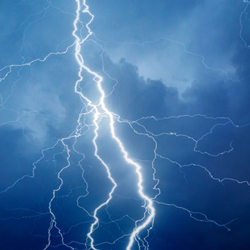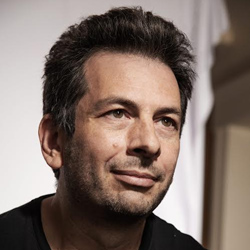Events
Past Event
WED@NICO SEMINAR: Lightning Talks with Northwestern Fellows and Scholars!
Northwestern Institute on Complex Systems (NICO)
12:00 PM
//
Lower Level, Chambers Hall
Details

Join us for a special Wednesday @ NICO with four 10 minute lightning talks from Northwestern University fellows and scholars.
Speakers:
Umit Aslan - Ph.D. candidate, Learning Sciences
Daniel J. Case - Ph.D. Candidate, Department of Physics & Astronomy
Aymeric Punel, Ph.D Candidate, Civil and Environmental Engineering
Orsolya Vasarhelyi, Visiting Pre-Doctoral Fellow, Department of Communication Studies
Abstracts:
Umit Aslan - How do lay people reason about complexity?
The intuitive understanding of complex systems plays a critical role in our lives. Deciding where to move, who to vote for or which career path to follow requires us to reason about systems and processes that are decentralized, unpredictable, and ever evolving. Thus, investigating how lay people reason about complex systems holds the key to designing learning environments and technologies. In this lightning talk, I will present some salient themes that emerged from my studies with first-time agent-based modelers, both adults and high-school students, on how they reason about real-world phenomena (e.g., gentrification, fake news, population decline) and also how they pick up agent-based modeling to investigate complex systems computationally.
Daniel J. Case - Exploiting nonlinear dynamics for programmable behavior in microfluidic networks
Microfluidic networks are a technology widely used across biomedicine, chemistry, and physics for the purpose of precisely manipulating small volumes of fluids (nanoliters). Typically, large external pumps and computers are used to control fluid flows through these networks, which hinders their inherent scalability and portability. Here, I present several microfluidic networks that exhibit an array of nonlinear flow dynamics, such as spontaneous oscillations, switching, bistability, and negative conductance transitions, which enable new mechanisms for built-in, programmable flow control. I show how these behaviors arise from nonlinear fluid mechanical effects that are amplified and harnessed through the design of the network geometry, and thus are not reliant on external control devices. These results are supported by analytic models, rigorous fluid dynamics simulations, and direct experiments.
Aymeric Punel - Modeling Driver Behavior in Crowdsourced Delivery Network
The sharing economy is growing in adoption and relevance. Despite the original promises, it has been shown to reproduce offline biases, and disadvantage already deprived populations. Due to limitations in data acquisition, online crowd-shipping, an emerging and consequential branch of the sharing economy, has received less investigation thus far. We fill this gap by investigating crowd-shipping driver behavior using a unique longitudinal data set from a US leading crowdsourced delivery company. After describing aggregate statistics of regional crowd-shipping networks, we use exponential random graph modeling to examine the significance of attribute similarities between drivers for engaging in similar bidding behavior. Specifically, we uncover that spatial proximity, tenure and performance homophily, as well as similarities between the neighborhoods of drivers are associated with choosing similar shipment requests. Conceptually, these findings help reveal behavioral patterns and map the invisible boundaries to free choice among crowd-shipping participants. Practically, the new knowledge can be used to inform recommender systems that could diversify options and improve experience with the platform.
Orsolya Vasarhelyi - Why diversity is not enough?
Despite improvements, women in STEM are still facing more challenges than their male colleagues: they earn less, have access to less funding, are less likely to be promoted, and their work receives less acknowledgment. These disparities persist, despite evidence that integrated female members increase the overall intelligence of teams and gender heterogeneous teams are more creative and productive.
Live Stream:
Time
Wednesday, June 5, 2019 at 12:00 PM - 1:00 PM
Location
Lower Level, Chambers Hall Map
Contact
Calendar
Northwestern Institute on Complex Systems (NICO)
WED@NICO SEMINAR: Blaise Aguera y Arcas, Google "Symbiogenesis, Computational Parallelism, and Complexity in Evolution"
Northwestern Institute on Complex Systems (NICO)
12:00 PM
//
Lower Level, Chambers Hall
Details

Speaker:
Blaise Agüera y Arcas, VP/Fellow, CTO of Technology & Society, Google
Title:
Symbiogenesis, Computational Parallelism, and Complexity in Evolution
Abstract:
Symbiogenesis-- the fusion of formerly independent self-replicating entities into a larger self-replicating entity-- is proposed as the driving force behind evolution's "arrow of time" toward ever-increasing complexity. We'll explore an Artificial Life system as a minimal motivating example, then discuss the implications for biological evolution beyond the "standard" accounts of Major Evolutionary Transitions and "intelligence explosions" in brainy species. Energetic and computational implications will also be addressed.
Speaker Bio:
Blaise Agüera y Arcas is a VP and Fellow at Google, where he is the CTO of Technology & Society and founder of Paradigms of Intelligence (Pi). Pi is an organization working on fundamental research in AI and related fields, especially the foundations of neural computing, active inference, sociality, evolution, and Artificial Life.
In 2008, Blaise was awarded MIT’s TR35 prize. During his tenure at Google, Blaise has innovated on-device machine learning for Android and Pixel; invented Federated Learning, an approach to decentralized model training that avoids sharing private data; and founded the Artists + Machine Intelligence program.
An External Professor at Santa Fe Institute and a frequent public speaker, Blaise has given multiple TED talks and keynoted NeurIPS. He has also authored numerous papers, essays, op-eds, and chapters, as well as two previous books, Who Are We Now? and Ubi Sunt. His most recent book, What Is Life?, is part 1 of the larger book What Is Intelligence?, forthcoming from Antikythera and MIT Press in September 2025.
Location:
In person: Chambers Hall, 600 Foster Street, Lower Level
Remote option: https://northwestern.zoom.us/j/98741396308
Passcode: NICO25
About the Speaker Series:
Wednesdays@NICO is a vibrant weekly seminar series focusing broadly on the topics of complex systems, data science and network science. It brings together attendees ranging from graduate students to senior faculty who span all of the schools across Northwestern, from applied math to sociology to biology and every discipline in-between. Please visit: https://bit.ly/WedatNICO for information on future speakers.
Time
Wednesday, November 12, 2025 at 12:00 PM - 1:00 PM
Location
Lower Level, Chambers Hall Map
Contact
Calendar
Northwestern Institute on Complex Systems (NICO)
Data Science Nights - November 2025 - Speaker: Feihong Xu, ESAM
Northwestern Institute on Complex Systems (NICO)
5:30 PM
//
Lower Level, Chambers Hall
Details

NOVEMBER MEETING: Thursday, November 20, 2025 at 5:30pm (US Central)
LOCATION:
In person: Chambers Hall, Lower Level
600 Foster Steet, Evanston Campus
AGENDA:
5:30pm - Meet and greet with refreshments
6:00pm - Talk with Feihong Xu, Amaral Lab, ESAM
Talk title and abstract TBA.
DATA SCIENCE NIGHTS are monthly meetings featuring presentations and discussions about data-driven science and complex systems, organized by Northwestern University graduate students and scholars. Students and researchers of all levels are welcome! For more information: http://bit.ly/nico-dsn
Time
Thursday, November 20, 2025 at 5:30 PM - 7:30 PM
Location
Lower Level, Chambers Hall Map
Contact
Calendar
Northwestern Institute on Complex Systems (NICO)
Data Science Nights - December 2025 - Speaker: Yash Chainani, Chemical Engineering
Northwestern Institute on Complex Systems (NICO)
5:30 PM
//
Lower Level, Chambers Hall
Details

DECEMBER MEETING: Thursday, December 18, 2025 at 5:30pm (US Central)
LOCATION:
In person: Chambers Hall, Lower Level
600 Foster Steet, Evanston Campus
AGENDA:
5:30pm - Meet and greet with refreshments
6:00pm - Talk with Yash Chainani, Broadbelt & Tyo Labs, Chemical Engineering
Talk title and abstract TBA.
DATA SCIENCE NIGHTS are monthly meetings featuring presentations and discussions about data-driven science and complex systems, organized by Northwestern University graduate students and scholars. Students and researchers of all levels are welcome! For more information: http://bit.ly/nico-dsn
Time
Thursday, December 18, 2025 at 5:30 PM - 7:30 PM
Location
Lower Level, Chambers Hall Map
Contact
Calendar
Northwestern Institute on Complex Systems (NICO)

